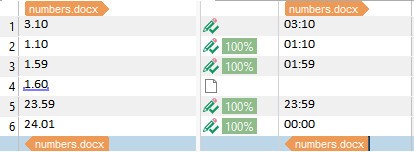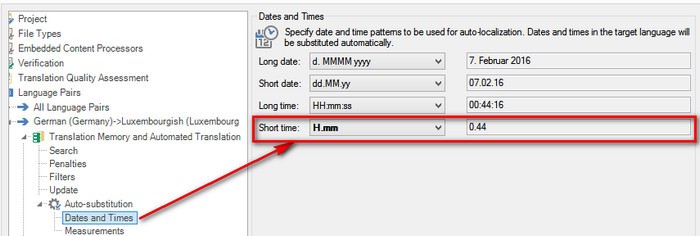Hi,
I have a problem in Trados 2015. I have German to Luxembourgish (DE-DE > LB) and soure string is an enumeration: 1.10
If I put 1.10 into target it gets then propagated to something I did not enter: 01:10 and I don't know how to get rid of that nasty habit if Trados. Why does it propagate something I did NOT enter?
I also see this quite often when using e.g. 1 TB with non-breaking space. It simply gets propagated to number(normal space)TB
Thanks for any help,
Pascal

 Translate
Translate





